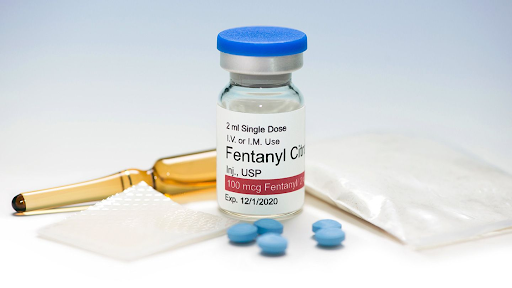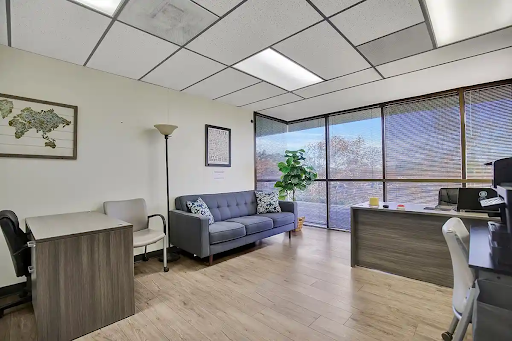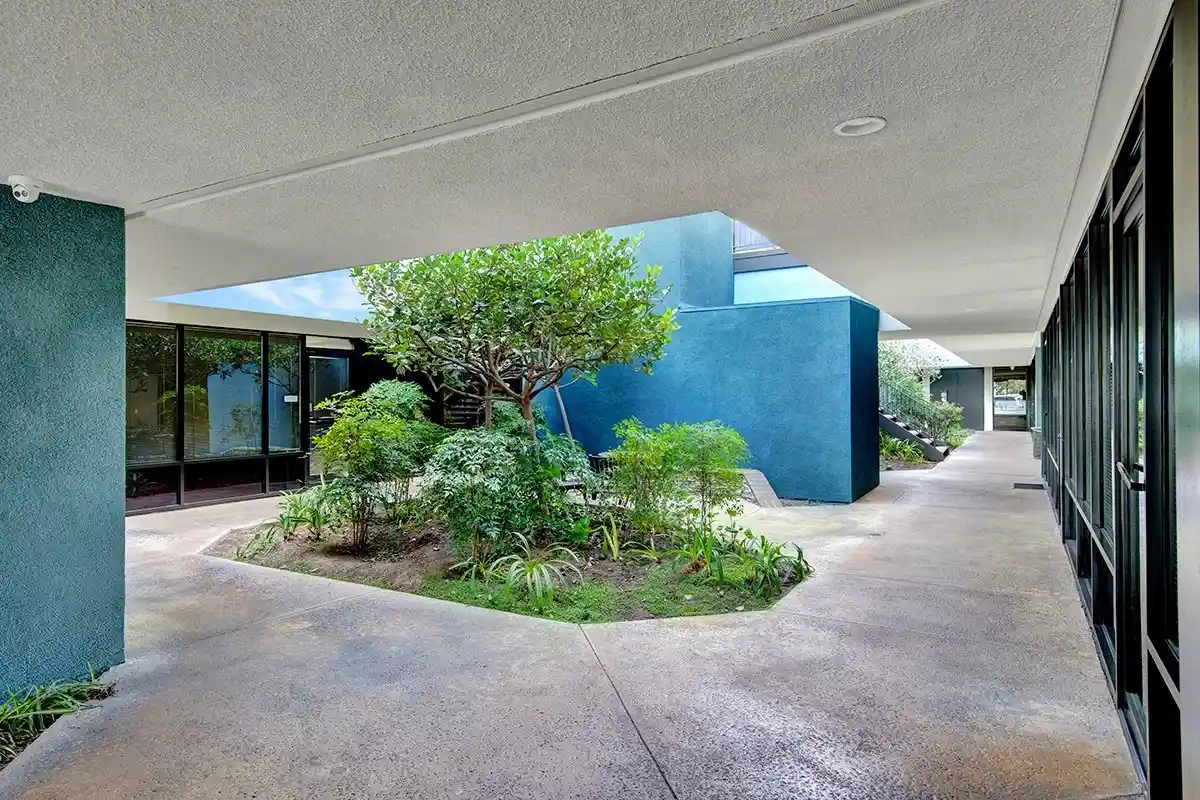The Disease of Addiction
Drug and substance abuse itself is a complicated topic, yet the question consistently plaguing the minds of non-addicts is: why? What could possibly lead someone to become addicted to substances, and why would they pursue that recreationally in the first place? Often, the answer is complicated, but many times a common denominator can be found: something is missing.
Whether it’s the death of family members, the absence of substantial relationships, social anxiety, or coping with mental illnesses, there is usually something missing that drug abuse temporarily alleviates the pressure of. It’s a temporary coping mechanism that creates a sense of sudden yet unparalleled euphoria, and addicts are often chasing that high in an attempt to feel some sense of normalcy in a world that is consistently tumultuous.
What non-addicts often don’t understand is that drug addiction is an illness, much like the flu or common cold. When facing illnesses such as the flu, it is often recommended to seek treatment, such as visiting a doctor or taking medication.
Drug addiction is much the same: it’s impossible to cure yourself, and investing in treatment for fentanyl addiction programs can alleviate the symptoms and develop healthier coping mechanisms.
Fentanyl Abuse
Fentanyl is a form of opioid, also known as a drug to treat severe pain. It is often prescribed after surgeries to aid recovery and prevent severe pain post-operation. It’s similar to morphine yet is 50 to 100 times stronger. Taking fentanyl can aid with sleep, as well as chronic pain and other issues.
Further, It takes a very small dosage of taking fentanyl to experience a high, which can make it a cheaper option as compared to other recreational drugs, such as ecstasy or cocaine. Overall, fentanyl addiction is shockingly easy to ease into, and extraordinarily difficult to undo.

How People Use Fentanyl Illegally
Fentanyl is sold as a powder, pills, and it is often put into nasal sprays and/or eye droppers. Illicit fentanyl is a leading cause of death in drug overdoses because drug dealers frequently mix it with other drugs. For instance, if a user were to take methamphetamine while mixing fentanyl with the dosage, they may consume a high volume of opiates, which can lead to serious illness or fentanyl overdose.
The Effects and Symptoms of Fentanyl Abuse

Fentanyl can cause the following symptoms:
- Pain relief
- Euphoria
- Drowsiness and confusion
- Nausea
- Relaxation
- Dizziness
Over time, the long-term effects of taking fentanyl can lead to further problems such as hypoxia, in which breathing slows down and the brain does not get the oxygen it needs. This can lead to permanent brain damage, and in extreme cases of fentanyl overdose, coma or death.
Fentanyl Addiction and Withdrawal Symptoms
Fentanyl addiction can start in as few as three days of consistently ingesting it, and attempting to quit can lead to painful withdrawal symptoms, such as:
- Vomiting
- Severe pain, especially in the muscles and bones
- Intense cravings
- Uncontrollable shaking
Those who become addicted to prescription opioids or fentanyl can often find it easier to keep taking it, as opioid withdrawal symptoms are unpleasant to experience and can cause more harm than good, especially in the case of chronic pain and other bodily issues.
The Benefit of Drug Rehabilitation Centers

Finding the Recovery Center that is Right for You
Not every recovery center is for every person, and finding the right place for your needs is essential on the road to sobriety. You made want to seek out resources near you in California:
Or if you need resources outside of California:
- Fentanyl addiction treatment program Massachusetts
- Fentanyl addiction treatment program Texas
- Fentanyl addiction treatment program Ohio
- Fentanyl addiction treatment Canada
Finding the right rehabilitation center is an issue of determining what your goals are, what fentanyl addiction treatment near me will work best to suit those goals, and what success within those goals means to you. Luckily, there are thousands of centers across the nation, and Zoe Recovery Center strives to help their patients to not only obtain their goals, but to maintain them.
How Zoe Recovery Center Can Help
Zoe Recovery Center, located in Lake Forest, California, prides itself on being a rehabilitation center that treats each of its patients with unique, individualized care. Their fentanyl addiction treatment program is heavily therapy-based and provides support every step of the way. Zoe Recovery Center attempts to identify the root of the problem within addiction and uses that to push forward care with a patented approach.
Zoe Recovery focuses on three steps to the best treatment for fentanyl addiction: detox, rehab, and aftercare.
Detox
Detox is always the first stage in any addiction treatment recovery process, and often the most difficult, as the symptoms are incredibly uncomfortable and often extremely painful. Completing detox inside of a rehabilitation center rather than alone ensures the best possible care through these difficult days and ensures the risk of relapse is low.
Rehab
Zoe Recovery calls its rehab stage the “core” of fentanyl addiction treatment. They offer two options for the rehabilitation process with their patients, whether it’s inpatient or outpatient treatment programs. Either way, patients are matched with a therapist equipped to handle their situation and ensure the steps they take are beneficial to recovery. Further, this stage of addiction recovery often involves group therapy and discussion, which can connect you with others who have faced similar struggles and can create a community to aid in the recovery process.
Aftercare
The aftercare stage involves Zoe Recovery Center’s involvement in sober living, whether it involves getting their patients situated in a sober living home or setting up weekly appointments between patients and their therapists.
Steps to Admission
When being admitted to Zoe Recovery Center for fentanyl addiction treatment, patients can typically expect the following steps to take place:
- Patients first work with an admissions counselor over the phone, doing an initial admission assessment and determining the level of care and approach the doctors within the facility need to take.
- The patient enters the facility, beginning the detox process.
- Upon entering the facility, patients see their doctor for medication that aids with the withdrawal process. This can alleviate painful symptoms and ensure that the patient is comfortable as possible.
- Start the medical detox. As this process continues, the doctors begin to taper off the medication detoxing the body, allowing the body to run its course with the withdrawal symptoms. While this is happening, the patient is under 24-hour care with a medical team.
- Once the withdrawal symptoms have worn off and the body begins to heal itself, patients begin participating in Zoe Recovery Center’s daily activities to ensure recovery of both the body as well as the mind. In the in-patient sessions, these daily routines include group counseling, individual counseling, and case management sessions. They also involve their patients in experiential therapy by going on outings and activities off-site, and nightly recovery meetings with local support groups.
- Patients continue to participate in this daily routine until a full recovery is made, usually around 30 days of in-patient care.
You Don’t Have to Fight Addiction Alone
Many times, when addicts seem reluctant to check themselves into rehabilitation, it is because they have something they’re leaving behind. This can be a partner or a pet, or something that is holding them behind that they are reluctant to leave.

At Zoe Behavioral Health, they offer a handful of programs such as couples rehab or pet-friendly options so their patients can be as comfortable as possible, whilst not leaving behind the comforts of their everyday lives.There is also a massive stigma around fentanyl addiction treatment and rehabilitation centers in general: those who have never grappled with addiction often believe that rehab isn’t entirely necessary. They believe addicts should just be able to quit on their own, and treatment shouldn’t be necessary. As such, struggling with addiction and seeking addiction treatment can be frowned upon in modern society.
Rehabilitations such as Zoe Behavioral Health not only help, but truly care for their patients and maintain the relationships with their patients past the point of care. There are plenty of people who are willing to help: it’s all about looking in the right places.

Does Rehabilitation Actually Help?
Not seeking out treatment options for fentanyl addiction is often because of questioning — will a rehabilitation treatment actually work? The answer is likely yes: so long as patients are taking the steps to help themselves whilst still asking for help and fighting to maintain their sobriety even after treatment, about 80% of addicts report staying sober past the nine-month mark outside of rehabilitation.
Zoe Behavioral Health recognizes that progress is not always linear, and urges its patients to remember that relapsing on fentanyl addiction is not a failure on the road to sobriety: just a speedbump.
What Patients Think
Zoe Behavioral Health has outstanding reviews, averaging at a 4.7/5 stars on Google Reviews. Popular reviews maintain that Zoe Behavioral Health truly cares for the recovery and well-being of their patients, and are well-stacked with a trained staff that demonstrate both practicality and empathy. Further, some reviews state that they have found a community of people they feel truly understand them, and that Zoe Behavioral saved their life.Further, many rehabilitation patients believe their quality of life increased after seeking treatment, and have since reported feeling much happier and more fulfilled.

In Conclusion
It can be difficult to ask for help, especially when dealing with difficult hurdles such as substance abuse and, more specifically, fentanyl addiction. Wherever you’re looking for help, rather that’s fentanyl addiction treatment Texas, California, or anywhere else. It’s important to remember that addiction is a disease just as much as the flu is, and when someone needs help with treating the flu, they go to the doctor. Much is the same with addiction, yet there is a stigma around rehabilitation centers and addiction is seen as voluntary rather than a legitimate struggle people face. However, seeking out options and admitting addiction treatment may be a necessary step in recovery can aid exponentially in the long, difficult process of getting sober.
Zoe Recovery focuses on taking a nuanced approach for every person, whether they’re grappling with a fentanyl addiction or addiction to other drugs/alcohol. They ensure that from the second the patients seek out treatment options, they are taken care of in a way that is specialized to their recovery process and being given endless resources every step of the way.
Further, they aim to not only help their patients in the long, bumpy road of addiction recovery, but to maintain that sobriety even after the in-patient care process ends.




